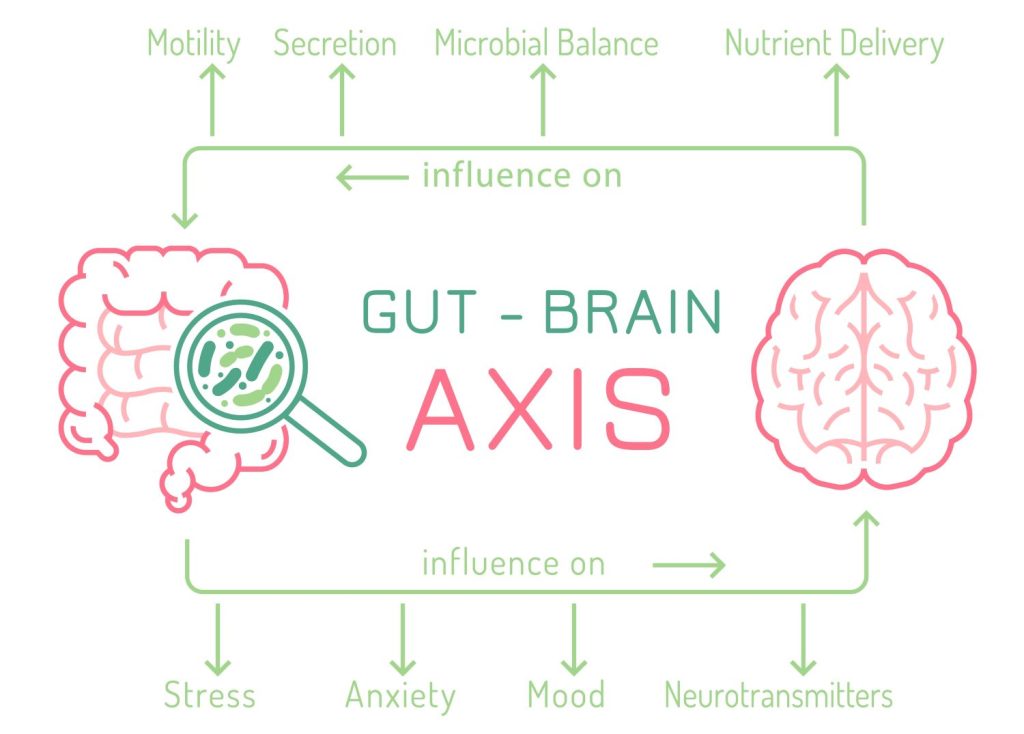
Though many people believe that stress is an unavoidable symptom of today’s society and societal norms, getting sick from it is not. From experiencing insurmountable work-related pressure to interpersonal challenges that arise in our relationships, stress can indeed take a toll on our general well-being and affect our digestive system. Nonetheless, there are organic ways to deal with it, reduce its harm and even look at it as a way to make you more powerful and present.
This article will explore the elaborate relationship between stress and gut health and offer practical solutions for cultivating practices that propose a holistic approach to nurturing the body and mind.
Understanding the Gut-Brain Axis
Researchers have long emphasized the powerful interaction between the brain and the gut, with bi-directional communication constantly influencing each other’s functions and well-being. Stressful situations trigger distress signals from the brain to the gut, impacting its function and vice versa.
Dr. Michael Gershon, a prominent figure in Neurogastroenterology, introduced the concept of the “second brain” in the gut, opening new possibilities for understanding our health. Chronic stress can disrupt the organic balance of the gut microbiota, impair digestive health, and hinder communication between the two brains (the one that’s supported by the spinal cord and the second one in the gut also known as the enteric nervous system.) However, various wellness approaches can enhance this brain-gut connection, ultimately promoting stress management and improved gut health.
Strategies for Stress Management and Gut Health
Harnessing the Power of Conscious Breathing
Learning breathwork techniques activates the body’s deep relaxation response, known as the “rest and digest” mode, which counters the harmful effects of stress. Deep belly breathing stimulates the vagus nerve, reestablishing communication between the brain and gut. This leads to reduced cortisol levels, a decrease in stress hormones, and increased production of calming neurotransmitters like acetylcholine. Consequently, the gut experiences reduced tension and improved digestive function, positively influencing overall gut health. Additionally, deep slow breathing enhances oxygen flow, improving circulation, aiding detoxification processes, and mitigating stress-induced inflammatory responses in the body, including the gut.
Embracing Yoga for Gut Health and Stress Management
Regular yoga practice goes beyond physical benefits, profoundly affecting gut health and stress management. Yoga postures involving twists bends, and gentle compression of the abdomen massage and stimulate digestive organs, improving blood flow and digestion. Twisting poses, such as Ardha Matsyendrasana and forward folds, support healthy digestion. Yin Yoga, Ashtanga, and Vinyasa yoga styles have emerged as powerful tools for enhancing well-being and strengthening the brain-gut connection. These dynamic yoga practices incorporate conscious breathwork and encourage healthy digestion, aiding nutrient absorption and toxin removal.
If you want to dive deep into the world of Yoga practice with over 20 years of experience instructor look no further, we offer a Yoga holiday experience that is suitable for everyone whether you’re a beginner or advanced.
Embracing Mindfulness Techniques
Practicing mindfulness techniques such as meditation, body scan exercises, and mindful eating significantly impacts the regulation of stress response systems in the body and mind. Mindful eating promotes better digestion, prevents stress eating, and fosters a positive relationship with food. Meditation helps individuals feel grounded and better equipped to handle stressors, while body scan exercises cultivate present-moment awareness and relaxation, indirectly influencing gut health through stress reduction and the mind-body connection.
Conclusion:
Understanding and nurturing the brain-gut connection is crucial for promoting overall well-being. By incorporating breathwork, yoga, and mindfulness techniques into our daily routines, we can effectively manage stress and improve gut health. These holistic approaches offer powerful tools for achieving balance, resilience, and harmony between our two brains, leading to a healthier and more balance life.
